What’s the Buzz
The Bee Healthy Blog
How Long Does it Take for Depression Medication to Work?
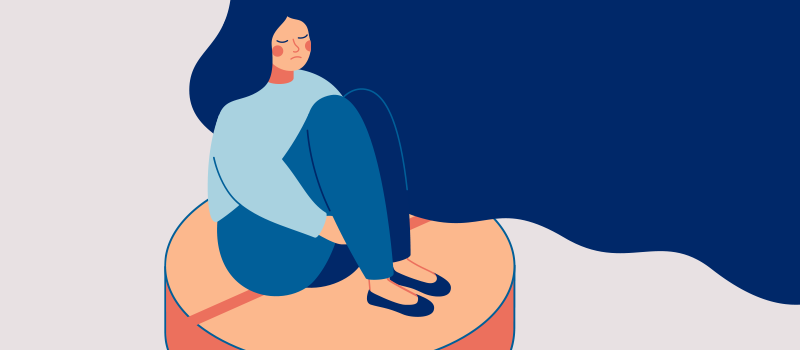
-
Antidepressants typically take 4-6 weeks to show noticeable improvements, with full benefits emerging after 2-3 months. It’s important to stay patient and committed to treatment, as discouragement is common due to delayed effects.
-
Response to antidepressants varies by individual, influenced by factors like depression severity, genetics, and overall health. Some may feel better within a few weeks, while others might need alternative medications or doses for relief.
-
Switching antidepressants or combining them with therapy can enhance treatment effectiveness. If initial medications don't work, your doctor may recommend adjustments, as untreated depression carries a risk of worsening symptoms or suicidal thoughts.
Major Depression and the Importance of Antidepressant Treatment
Treating depression symptoms is critical for mental health and preventing suicide, which is one of the leading causes of death in the United States. However, medications used to treat depression don’t work right away. It can take several weeks for a person to start to feel better on antidepressants. This frequently causes people struggling with depression to become discouraged during treatment. Knowledge of antidepressant timelines is, therefore, valuable in helping you understand when to expect improvement in your symptoms.
Experts estimate that 1 in 5 Americans will experience a major depressive episode at some point in their life. Roughly 1 in 10 adults in the United States has had moderate to severe depression symptoms within the past year. For individuals who are living with depression, antidepressant medications can give substantial relief from depressive symptoms.
Please continue reading to learn how long it takes pharmaceutical therapy to relieve depression. Also, find out why it takes antidepressants so long to work and what other treatment options can offer faster relief.
How Long Does It Take for Depression Medication to Work?
Most patients get some improvement in their symptoms of depression about 1 to 2 weeks after starting antidepressant medicine. However, it can take 4 to 6 weeks to notice a significant improvement in depression and 2 to 3 months to get the full benefits of the medicine. Notably, the first drug that is tried may not lead to significant improvement in depression symptoms. Therefore, it can take some trial and error to find the antidepressant medicine that works for you.
How Long After Taking Antidepressants Will I Feel Better?
You should start to feel better in 4 to 6 weeks after starting an antidepressant and obtain maximum benefit after taking it for 2 to 3 months.
With that said, everyone is different, and a person’s response to a specific medicine cannot be predicted. Some people may experience quick relief of symptoms, while others can take considerably longer to benefit from a drug. Many people do not respond to antidepressants at all.
If you do not show any improvement in symptoms of depression after 6 weeks, your psychiatrist or doctor can provide medical advice. This may include changing the dose of your medicine, switching to a different type of antidepressant, or adding other treatments such as therapy.
Factors Influencing The Onset of Antidepressant Effects
Many factors can influence the onset of antidepressant effects (how quickly the medicine works) and clinical response and outcome (how effective the medicine is in treating depression). These include:
-
Severity of depression symptoms. People with mild depression may notice an improvement in their symptoms sooner than those with severe depression.
-
Other mental health conditions. Antidepressants may take longer to start working if there are other mental illnesses, such as anxiety or panic disorder alongside major depression.
-
Past psychiatric and medical history. Other health conditions can affect how quickly antidepressants start working.
-
Genetic factors: Genes can affect nerve cell receptors and their response to neurotransmitters.
-
Environmental factors: For example, how regularly a person takes their medicine and attends therapy sessions.
-
Other factors: Such as a person’s metabolism, liver function, age, gender, and nutritional status.
Read more: What Are The 10 Types Of Depression?
Save On Your Depression Medication With BuzzRx
Overview of Antidepressants
The U.S. Food and Drug Administration (FDA) approved antidepressant drugs to treat mental health conditions such as major depressive disorders, generalized anxiety disorder, panic disorder, obsessive-compulsive disorder (OCD), eating disorders like bulimia nervosa, and post-traumatic stress disorder (PTSD).
Antidepressants are also used off-label to treat a wide range of health conditions such as sleep disorders, migraine headaches, irritable bowel syndrome, and hot flashes in menopausal women.
Common Types of Antidepressants
There are several different classes of antidepressants, including selective serotonin reuptake inhibitors (SSRIs), tricyclic antidepressants (TCAs), serotonin-norepinephrine reuptake inhibitors (SNRIs), monoamine oxidase inhibitors (MAOIs), and others. Here are some of the most commonly prescribed ones:
-
Tricyclic antidepressants: Amitriptyline (Elavil), desipramine (Norpramin), imipramine (Tofranil), nortriptyline (Pamelor).
-
Selective serotonin reuptake inhibitors (SSRIs): Citalopram (Celexa), escitalopram (Lexapro), fluoxetine (Prozac), sertraline (Zoloft), paroxetine (Paxil).
-
Selective serotonin-norepinephrine reuptake inhibitors (SNRIs): Levomilnacipran (Fetzima), duloxetine (Cymbalta), venlafaxine (Effexor), desvenlafaxine (Pristiq, Khedezla).
-
Serotonin modulators: Vortioxetine (Trintellix) and vilazodone (Viibryd).
-
Tetracyclic antidepressants: Mirtazapine (Remeron).
-
Monoamine oxidase inhibitors (MAOIs): Isocarboxazid (Marplan), phenelzine (Nardil), selegiline (Emsam), tranylcypromine (Parnate).
How Does An Antidepressant Work in the Body?
The different types of antidepressants all work in a slightly different way. However, what is common among these medications is that they target the levels of natural brain chemicals (also known as neurotransmitters) such as serotonin, dopamine, and norepinephrine. In people with depression and other mood disorders, the levels of brain chemicals are not balanced. Therefore, by increasing the levels of these brain chemicals, antidepressants can help improve mood, emotion, motivation, and the general sense of well-being.
Currently available antidepressants increase the amounts of serotonin, norepinephrine, or both in the synapse (nerve terminal or gap between nerve cells). They make more of these neurotransmitters available by preventing reuptake (absorption) back into the neurons (nerve cells).
Why Does It Take So Long For Antidepressant Medications To Work?
The most commonly prescribed antidepressants are SSRIs (examples include Prozac, Zoloft, Celexa, Lexapro, and Paxil). These medications work by increasing the amount of serotonin available in the brain. As mentioned, serotonin is a neurotransmitter that is a mood elevator. SSRIs prevent the reuptake or transport of serotonin back into the neurons (nerve cells).
However, the increased availability of serotonin in the synapse (the gap between nerve cells) does not immediately lead to an antidepressant response. This only occurs after you take the antidepressant medicine for several weeks because it causes downregulation of serotonergic receptors (a decrease in the number of serotonin receptors on nerve cells).
Antidepressants take several weeks to work because they inactivate not only the individual serotonin transporters in brain cells but also the genes that code for making the transporters. In this way, over time, SSRIs lead to fewer serotonin transporters in the brain cells. The result is more serotonin is available to regulate mood.
Different people respond differently to antidepressants because each person’s gene expression of the serotonin transporter varies. The response to antidepressants is also affected by other factors such as metabolism rate, liver function, age, sex, and nutritional status.
Timeframe for Different Types of Antidepressants
Different types of antidepressants can take different amounts of time to work. Here’s what studies have found:
SSRIs
-
Studies have found that citalopram and escitalopram have an earlier onset of action than other standard antidepressants such as fluoxetine and sertraline with improvement in symptoms within 2 weeks.
-
Systematic review of clinical trials has shown that escitalopram (Lexapro) works faster than other SSRIs and venlafaxine which is an SNRI. Learn more about Lexapro.
-
Research also suggests that taking fluoxetine with tryptophan (an essential amino acid) can lead to an earlier onset of antidepressant effects.
Other Antidepressants
-
Studies suggest that monoamine oxidase inhibitors (MAOIs) may work faster than other classes of antidepressants. However, MAOIs are less commonly prescribed because of possible side effects and drug interactions.
-
Researchers have found mirtazapine (Remeron) works significantly faster than SSRIs, including fluoxetine, paroxetine, citalopram, and sertraline.
What Works Faster: Tricyclic Antidepressants (TCAs) or Selective Serotonin Reuptake Inhibitors (SSRIs)?
There isn’t much difference in how quickly SSRIs and TCAs start working or their effectiveness in treating major depressive disorder. However, tricyclic antidepressants are an older class of drugs. They are less selective than SSRIs and SNRIs, i.e., they affect more body systems and cause more side effects.
Your response to a medicine may be different from someone else who took the same medicine. As mentioned, an SSRI works by affecting serotonin, while a TCA affects serotonin and norepinephrine levels in the brain.
Some of the most commonly prescribed antidepressants include SSRIs (Prozac, Zoloft) and SNRIs (Effexor, Cymbalta). These types of antidepressants take about 2 weeks to begin working and produce a full effect in around 2 months.
Typical Experiences When Antidepressants Begin to Work
How Do You Know When Antidepressants Kick In?
You know your antidepressant has kicked in if you start to feel less depressed and more energetic and have a more positive outlook on life. You might notice fewer negative thoughts and feelings, an improved ability to do daily activities, and a renewed interest in socializing and hobbies. In addition, you may have less fatigue, start sleeping better, and have your appetite return.
What Does It Feel Like When Antidepressants Start Working?
You feel more like yourself again when antidepressants start working. You may notice you’re happier, have more energy, and are optimistic about life. Feelings like sadness, anxiety, and irritability will slowly go away.
Can Antidepressants Work Immediately?
Antidepressants cannot work immediately. Most patients start to feel better about 4 to 6 weeks after starting treatment with antidepressants. It takes this much time for the drug to build up in the body. Your psychiatrist or doctor may increase the dose during this time, depending on your response. It’s important to understand this timeline before starting antidepressants so that you don’t feel discouraged in the early stages of your treatment.
How Long Does It Take To Treat Depression With Medication?
Antidepressants are not designed to provide only short-term relief from depression symptoms. They also prevent future episodes of depression. An untreated episode of major depression can last for around 6 months and has a high chance of recurrence. For this reason, treatment with antidepressants is usually continued for 6 to 12 months, even after obtaining symptom relief. Depending on the severity of your symptoms, your doctor may continue treatment for 3 years or longer.
It is important not to stop treatment as soon as you start feeling better. There is a high chance that your depressive symptoms will return if you discontinue your medication before your doctor says so. To obtain maximum benefits for your mental health, you should take the medication as prescribed. Discuss coming off the medication with your doctor when you feel ready. Your doctor will gradually reduce the dose of your antidepressant medication. This is to prevent unpleasant withdrawal symptoms that can occur if you stop taking the medication suddenly.
How To Get Fast Relief from Depression?
If you need faster relief of symptoms, especially if you have both anxiety and depression, your doctor may prescribe short-term treatment with medications such as benzodiazepines (examples include Valium, Ativan, and Klonopin). These medicines can provide relief much faster than SSRIs or other antidepressants.
However, due to the risk of dependence benzodiazepines are generally intended for short-term use until reaching the full effects of antidepressants. Besides benzodiazepines, there are other alternatives to alleviate the symptoms of anxiety (fast, racing heart rate, tremor) such as propranolol (Inderal) or hydroxyzine (Vistaril).
Compare benzodiazepines vs. SSRIs.
How Long Do Antidepressants Take To Work for Anxiety?
Antidepressants take 4 to 6 weeks to work for anxiety. You may start to notice a change in your symptoms after 1 to 2 weeks, but it can take several more weeks to get the full effect of the antidepressant medication. Many people with anxiety have other mental health conditions. For example, depression and anxiety often go hand in hand. A mental health professional can make a proper diagnosis and prescribe the appropriate treatment for your mental health condition.
What To Do If My Antidepressant Isn’t Working?
As noted above, antidepressants don’t work right away. In someone with mild depression, the effects of the medication may be felt faster. More severe depression can take longer to respond. It could be that you don’t improve even after you take an antidepressant for a few weeks. Don’t let this dishearten you. And don’t stop taking your medicine without consulting your doctor.
Just because one medicine didn’t work doesn’t mean your depression is not treatable. It requires patience. Some people may need to change to another medicine because of intolerable side effects from a specific drug. You will need to work with your doctor to figure out what medicine effectively relieves your symptoms without causing side effects.
When To Consult A Healthcare Provider
If you have not experienced relief of depressive symptoms with a particular medicine, call your doctor. Your doctor may increase the dose of your medicine, combine it with another medicine, change you to another antidepressant, or recommend starting concurrent psychotherapy or other treatments for depression.
Some people have treatment-resistant depression, and it can be more challenging to get a grip on depression in such cases. Your healthcare provider may consider medications such as esketamine nasal spray (Spravato) if you don’t respond to standard antidepressant drugs. Other treatment options for treatment-resistant depression include a combination of fluoxetine and olanzapine (an antipsychotic drug).
Side Effects and Risks of Antidepressant Therapy
Common side effects of antidepressants include:
-
Nausea, stomach pain, indigestion, diarrhea, constipation
-
Headaches, drowsiness, dizziness
-
Insomnia, restlessness, nightmares, vivid dreams
-
Sexual dysfunction
-
Agitation, shakiness, anxiety
-
Excessive sweating
Potential health risks of antidepressant therapy include:
-
Suicidal thoughts: In some people, antidepressant treatment can lead to suicidal ideation (thoughts or actions of self-harm). Tell your doctor without delay if you notice any new or worsening depression or unusual changes in mood and behavior. Your family members should know how to seek care if you cannot do so yourself.
-
Antidepressant discontinuation syndrome: Symptoms such as nausea, fatigue, muscle aches, and insomnia can occur if you stop taking the medicine, especially if you stop suddenly.
-
Serotonin syndrome: This is a rare, but serious complication of antidepressant therapy that occurs due to too much serotonin in the body. The risk is high if you also take other medications that can increase serotonin levels, for example, herbs like St. John’s wort. Seek emergency medical care if you develop confusion, agitation, sweating, muscle twitching, or seizures.
-
Hyponatremia (low sodium): SSRIs and other antidepressants can lead to low sodium levels in the body, which can have dangerous health consequences. Seek immediate medical care for signs and symptoms like headache, muscle pain, decreased appetite, and confusion.
If you have depression symptoms, it is important to be medically reviewed and treated. Taking an antidepressant could be critical for your mental health. You should follow your doctor’s advice, diagnosis, or treatment for depression. As noted, it may take 4-6 weeks for antidepressants to start working. Complete benefit can take 2-3 months.
If you don’t get relief with the first drug you try, you may find that switching to another type of antidepressant does the trick. It’s also important to talk to your doctor about possible side effects from an antidepressant. If you have adverse effects on an antidepressant, your doctor can try a different type of drug.
The important thing is to seek medical advice, diagnosis, and treatment for major depressive disorder from a healthcare provider. Untreated depression can put you at risk of self-harm - suicidal thoughts and actions are common in people who are depressed.
Keep in mind also that antidepressant medications work best when used in combination with psychotherapy. With a multi-pronged treatment plan in place, your depressive symptoms and any other conditions affecting your mental health have a very good chance of improving.
References:
-
https://jamanetwork.com/journals/jamapsychiatry/fullarticle/2671413
-
https://www.cdc.gov/nchs/fastats/leading-causes-of-death.htm
-
https://my.clevelandclinic.org/health/treatments/25146-tricyclic-antidepressants
-
https://my.clevelandclinic.org/health/diseases/25218-antidepressant-discontinuation-syndrome

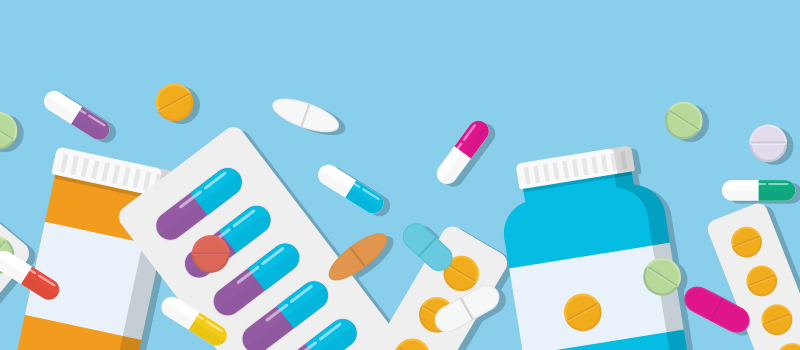


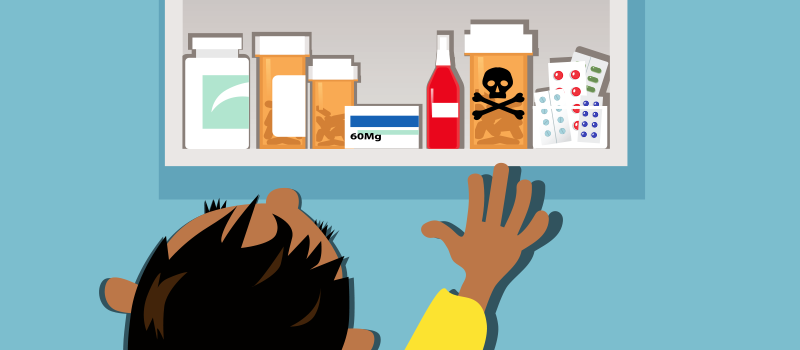
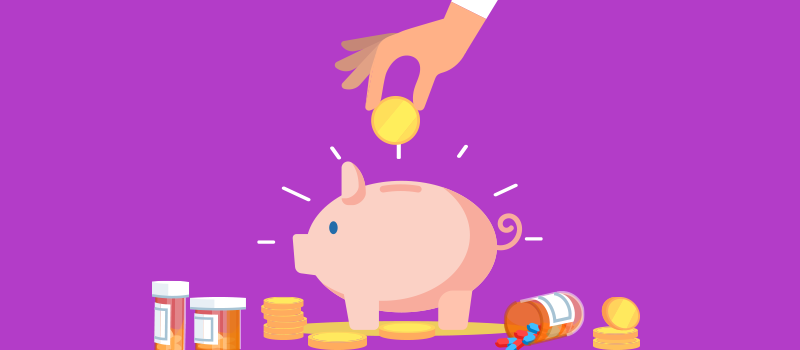
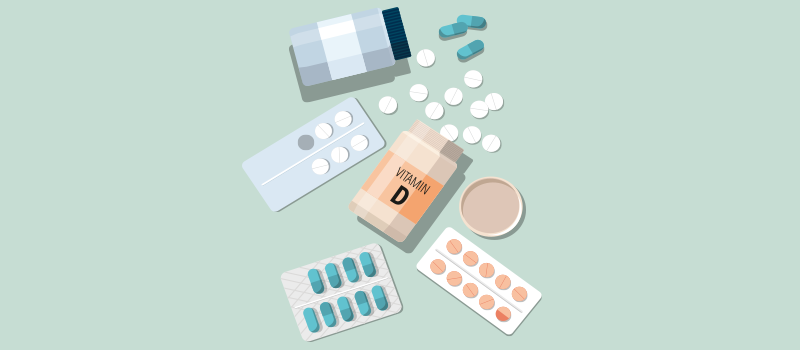

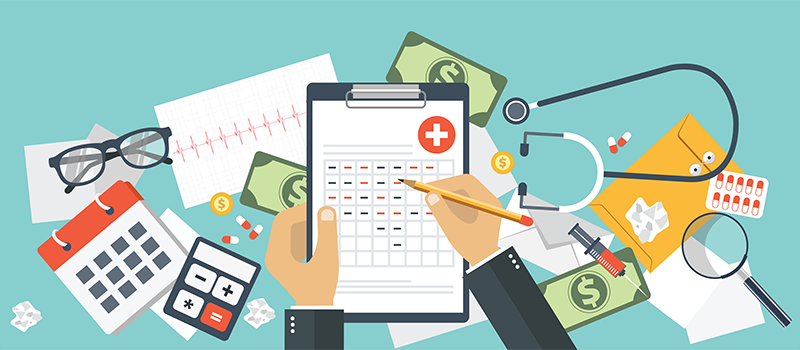
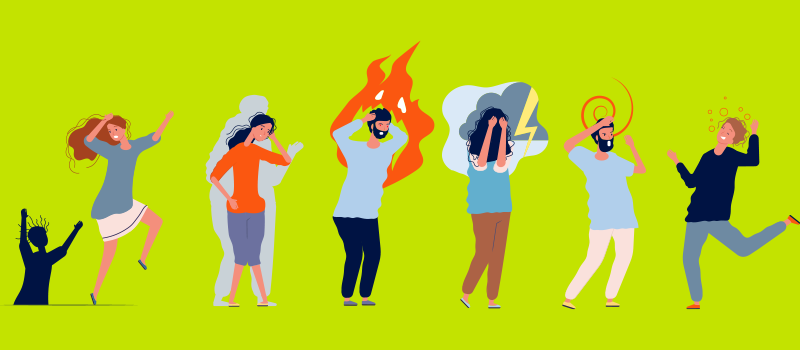

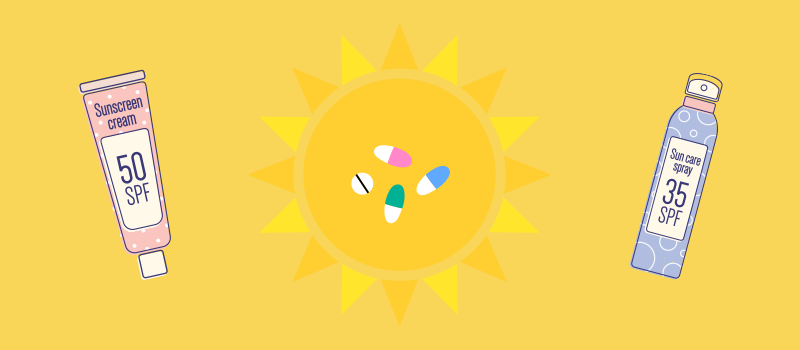
SOCIAL